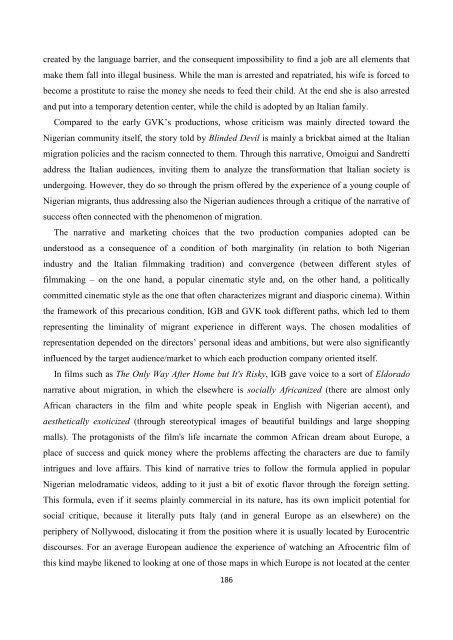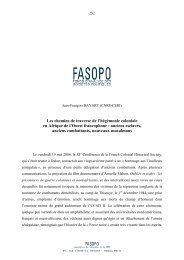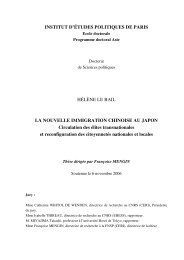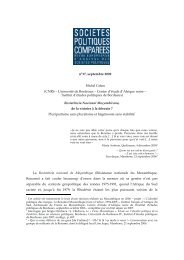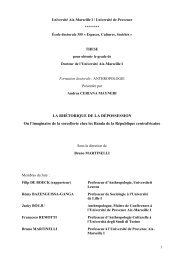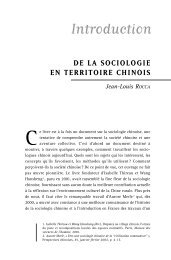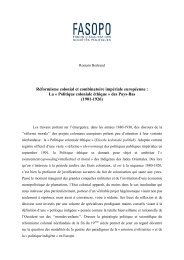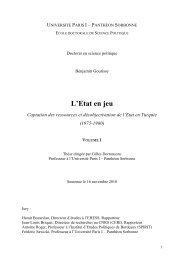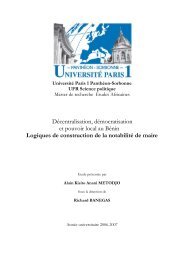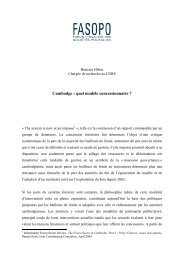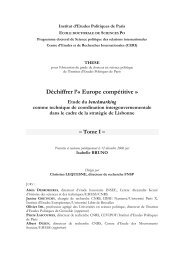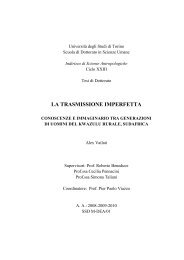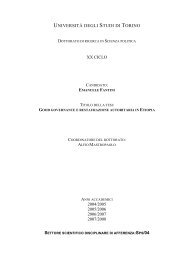You also want an ePaper? Increase the reach of your titles
YUMPU automatically turns print PDFs into web optimized ePapers that Google loves.
created by the language barrier, and the consequent impossibility to find a job are all elements thatmake them fall into illegal business. While the man is arrested and repatriated, his wife is forced tobecome a prostitute to raise the money she needs to feed their child. At the end she is also arrestedand put into a temporary detention center, while the child is adopted by an Italian family.Compared to the early GVK’s productions, whose criticism was mainly directed toward theNigerian community itself, the story told by Blinded Devil is mainly a brickbat aimed at the Italianmigration policies and the racism connected to them. Through this narrative, Omoigui and Sandrettiaddress the Italian audiences, inviting them to analyze the transformation that Italian society isundergoing. However, they do so through the prism offered by the experience of a young couple ofNigerian migrants, thus addressing also the Nigerian audiences through a critique of the narrative ofsuccess often connected with the phenomenon of migration.The narrative and marketing choices that the two production companies adopted can beunderstood as a consequence of a condition of both marginality (in relation to both Nigerianindustry and the Italian filmmaking tradition) and convergence (between different styles offilmmaking – on the one hand, a popular cinematic style and, on the other hand, a politicallycommitted cinematic style as the one that often characterizes migrant and diasporic cinema). Withinthe framework of this precarious condition, IGB and GVK took different paths, which led to themrepresenting the liminality of migrant experience in different ways. The chosen modalities ofrepresentation depended on the directors’ personal ideas and ambitions, but were also significantlyinfluenced by the target audience/market to which each production company oriented itself.In films such as The Only Way After Home but It's Risky, IGB gave voice to a sort of Eldoradonarrative about migration, in which the elsewhere is socially Africanized (there are almost onlyAfrican characters in the film and white people speak in English with Nigerian accent), andaesthetically exoticized (through stereotypical images of beautiful buildings and large shoppingmalls). The protagonists of the film's life incarnate the common African dream about Europe, aplace of success and quick money where the problems affecting the characters are due to familyintrigues and love affairs. This kind of narrative tries to follow the formula applied in popularNigerian melodramatic videos, adding to it just a bit of exotic flavor through the foreign setting.This formula, even if it seems plainly commercial in its nature, has its own implicit potential forsocial critique, because it literally puts Italy (and in general Europe as an elsewhere) on theperiphery of Nollywood, dislocating it from the position where it is usually located by Eurocentricdiscourses. For an average European audience the experience of watching an Afrocentric film ofthis kind maybe likened to looking at one of those maps in which Europe is not located at the center186


